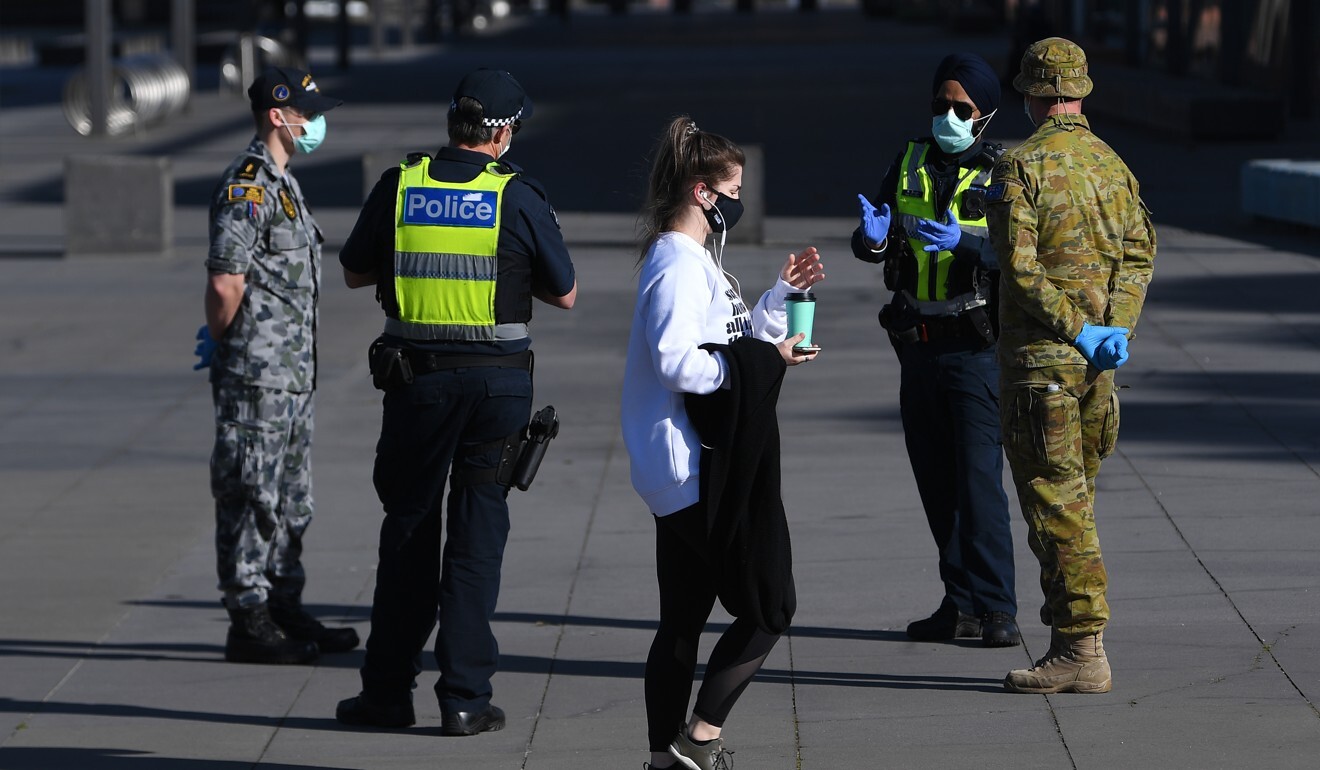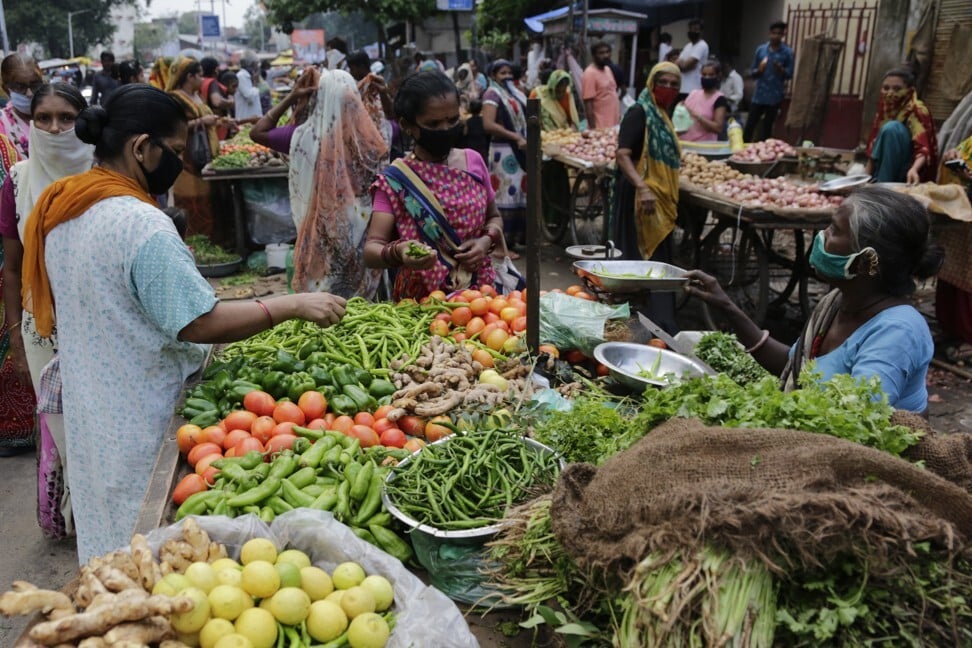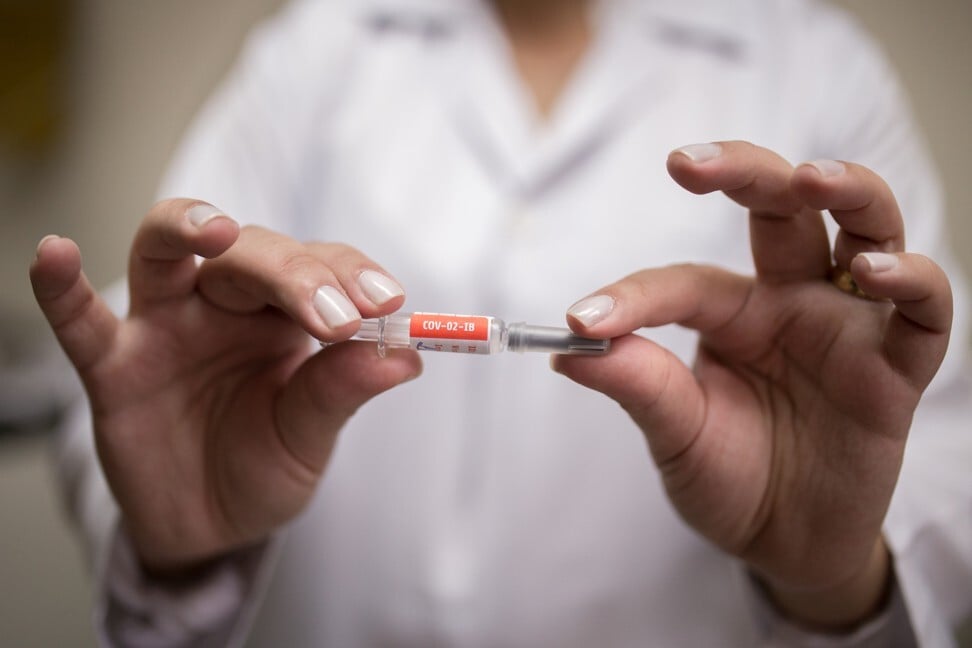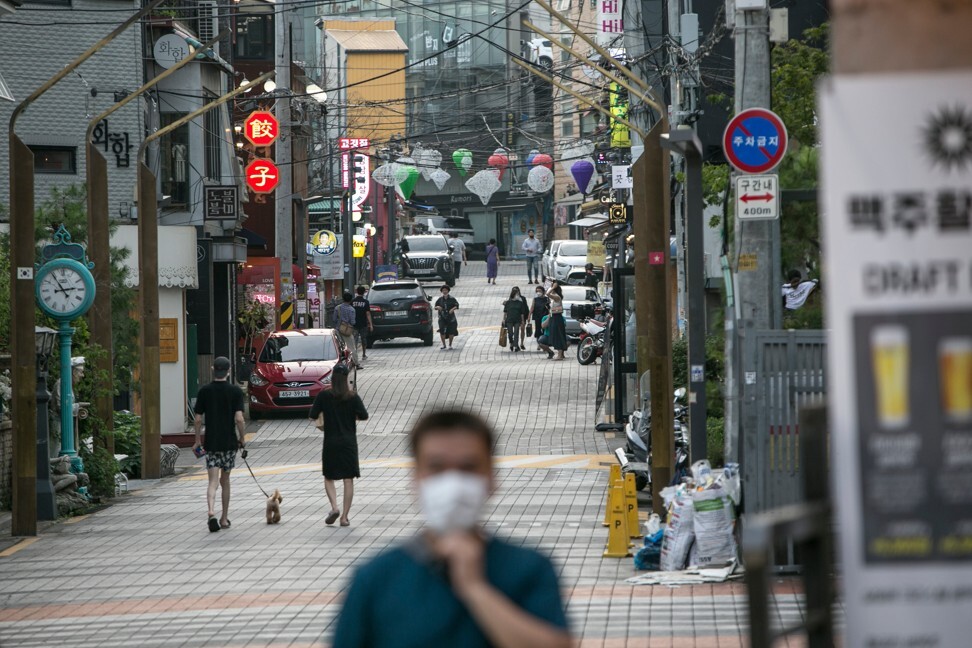
Coronavirus latest: India nears 3 million cases; Japan and Cambodia ease travel restrictions
- India is the third worst-hit nation behind the United States and Brazil, as the WHO says it hopes to stop the pandemic within two years
- Indonesia has signed a deal with China’s Sinovac Biotech for 50 million doses of a vaccine concentrate that will allow it to produce doses locally
“Hoping we can have additional tools like a vaccine, I think we can finish it in a shorter time than the 1918 flu,” Tedros Adhanom Ghebreyesus said in a news conference in Geneva, referring to the Spanish flu pandemic that claimed tens of millions of lives until 1920.
While the Covid-19 disease can spread more easily because the world is far more interconnected than it was a century ago, modern technology has given humanity the tools to fight it more effectively than the Spanish flu, Ghebreyesus said.
“So we hope to finish this pandemic in less than two years,” he said.
Ghebreyesus warned, however, that “even if we do have a vaccine, it won’t end the pandemic on its own”.
Countries must not simply bank on a future vaccine but must implement known effective health measures, while people must adjust their lives to curb infections, the UN health chief stressed.
Here are other updates:
India cases near 3 million
The total caseload now stands at 2,975,701. Globally the South Asian country has been reporting the biggest daily rise in cases for 18 consecutive days.
Indonesia signs deal with China’s Sinovac for vaccine concentrate
Sinovac will ship the concentrate in five equal stages between November and March, vaccine maker Bio Farma said in a statement on Saturday. Beijing-based Sinovac also granted priority access for bulk supply to Indonesia until the end of 2021.
The government is also seeking a possible partnership with Chinese pharmaceutical company Sinopharm Group Co, Foreign Minister Retno Marsudi said on her Twitter account on Friday.
About 150,000 Indonesians have tested positive for Covid-19, with fatalities reaching 6,500 as of August 22, Johns Hopkins University data shows.
Bio Farma will increase its manufacturing capacity to 250 million doses by the end of the year from about 100 million now, the company said.
The Covid-19 vaccine concentrate will require a series of tests and should be registered with the Indonesian Food and Drug Monitoring Agency before mass production.
South Korea tightens distancing measures as outbreak grows
Health Minister Park Neung-hoo announced the measures after officials reported 332 newly confirmed cases, the highest the highest daily figure since early March and also the ninth straight day of triple-digit increases.
Most of the new cases were in the Seoul metropolitan area, which has been at the centre of the viral surge in recent weeks. But infections were also reported in virtually every major city and in towns across South Korea.
The government had earlier in the week already imposed the tighter restrictions in the capital region, a move they resisted for months out of economic concerns. Park said it had become inevitable to expand the same measures nationwide with the virus spreading more broadly.
Japan, Cambodia to ease travel restrictions, Japan eases restrictions for students
Japan and Cambodia agreed on Saturday to reopen borders for expatriates, starting possibly from early September, on condition they observe a 14-day self-quarantine period and take other precautions against the novel coronavirus.
Foreign Minister Toshimitsu Motegi agreed on the policy with Cambodian Prime Minister Hun Sen during their meeting in Phnom Penh, according to the Japanese Foreign Ministry.
It is the third such deal Japan has struck this month following those with Singapore and Malaysia, as Tokyo looks for ways to gradually relax its restrictions on the entry of foreign nationals from nearly 150 countries since the outbreak of the virus.
Motegi aims to clinch similar travel resumption agreements with Laos and Myanmar, which he will visit on the final two stops of his four-nation tour through Tuesday. Before arriving in Cambodia, he was in Papua New Guinea.
Meanwhile, Japan has also decided to ease entry restrictions for foreign students, possibly within this month, government sources said on Saturday. It also plans to fully lift the re-entry ban on foreign nationals who hold resident status as early as next month.
The restrictions for foreign students will first be eased for those sponsored by the Japanese government and the relaxation is expected to be later expanded to self-supporting international students.
All foreigners will be required to take polymerase chain reaction tests and prove that they are not infected with the virus when entering Japan, the sources said, adding that they will also be requested to stay in self-isolation for two weeks to monitor their health.
Japan currently denies entry from 146 countries and regions. The denial of re-entry for those with resident status has drawn strong criticism particularly from the country’s expatriate community, as it effectively prevents them from travelling abroad and returning.
Tokyo sees 256 new cases
The Tokyo metropolitan government on Saturday reported 256 new cases of the novel coronavirus, topping 200 for the third straight day, although some health experts have suggested that a resurgence of infections already hit its peak in late July.
The single-day figure, compared with Friday’s 258 and 339 confirmed on Thursday, brought Tokyo’s cumulative total to 19,121. The average daily tally over the most recent seven days was 238.1. The number of patients with severe symptoms and who were hospitalised stood at 37, four more people than the previous day, according to the metropolitan government.
The daily figures reflect the most recent totals reported by health authorities and medical institutions.
The Tokyo government’s alert for the coronavirus pandemic remains at the highest of four levels, meaning “infections are spreading”. It has requested that establishments serving alcohol and karaoke venues close by 10pm until the end of August to reduce the risk of infection.

Australia’s Victoria cases stabilising midway through lockdown
“It’s difficult, it’s painful, but if we can just stay the course then we will get to the other side of this. Then we’ll be able to open up,” he said.
“It’s great to see two days in a row under 200, certainly we are trending down,” said Brett Sutton, the state’s chief health officer. “The best way to safeguard against a third wave is to bring that number down to the lowest feasible, possible level.”
The state, home to about one in four Australians, also reported 13 new coronavirus fatalities. Deaths from the state account for about 80 per cent of Australia’s Covid-19 death toll due to a second wave of infections.
Apart from Victoria, Australia has large avoided the high casualty numbers of many nations with just under 24,500 infections and 485 deaths.
Reporting by AP, AFP, Reuters, TNS



